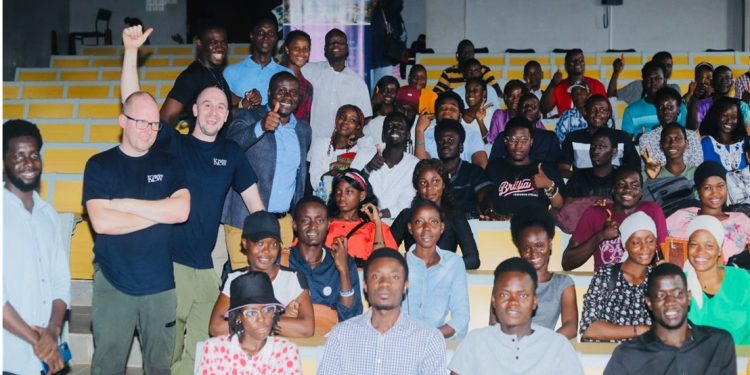The Africell Impact Foundation and the Royal Botanic Gardens, Kew, recently hosted a public lecture for Biological Sciences students at Fourah Bay College (FBC), University of Sierra Leone.
The event, themed “Navigating the Future: Ensuring the Resilience of Trees in an Evolving Climate,” aimed to deepen students’ understanding of climate resilience and urban biodiversity.
The lecture featured a presentation by Kevin Martin, Head of Tree Collection at Kew Gardens, who detailed the impacts of urbanization on local climates, specifically addressing the “urban heat island” effect.
“The global urban population now exceeds the rural population and is projected to surpass six billion by the 2050s,” Martin explained. He warned of the increasing exposure of urban infrastructure to climate change, fueled both by greenhouse gas emissions and developing urban microclimates.
Andrew S. Fatoma, Africell’s Chief Administrative and Human Resources Officer, highlighted Africell’s commitment to corporate social responsibility, mentioning the company’s nearly two decades of community support.
“Africell’s impact is felt through initiatives like the Africell Impact Foundation and other humanitarian projects,” Fatoma stated, reaffirming the company’s dedication to supporting Fourah Bay College and improving internet connectivity across Sierra Leone.
Dr. Okoni Williams, Head of the Department of Biological Sciences at FBC, noted that one of the college’s students had previously collaborated with Kew Gardens. He emphasized the importance of the partnership, pointing to past projects and a recent departmental milestone: the discovery of a previously undocumented plant species in Sierra Leone. Dr. Williams encouraged students to draw from Kew’s expertise in tackling Sierra Leone’s climate challenges and appealed to Africell to enhance internet access on the college’s challenging topography.
The lecture underscored Africell’s enduring commitment to educational and environmental causes, as well as Kew Gardens’ role in fostering climate science expertise among future Sierra Leonean environmentalists.











